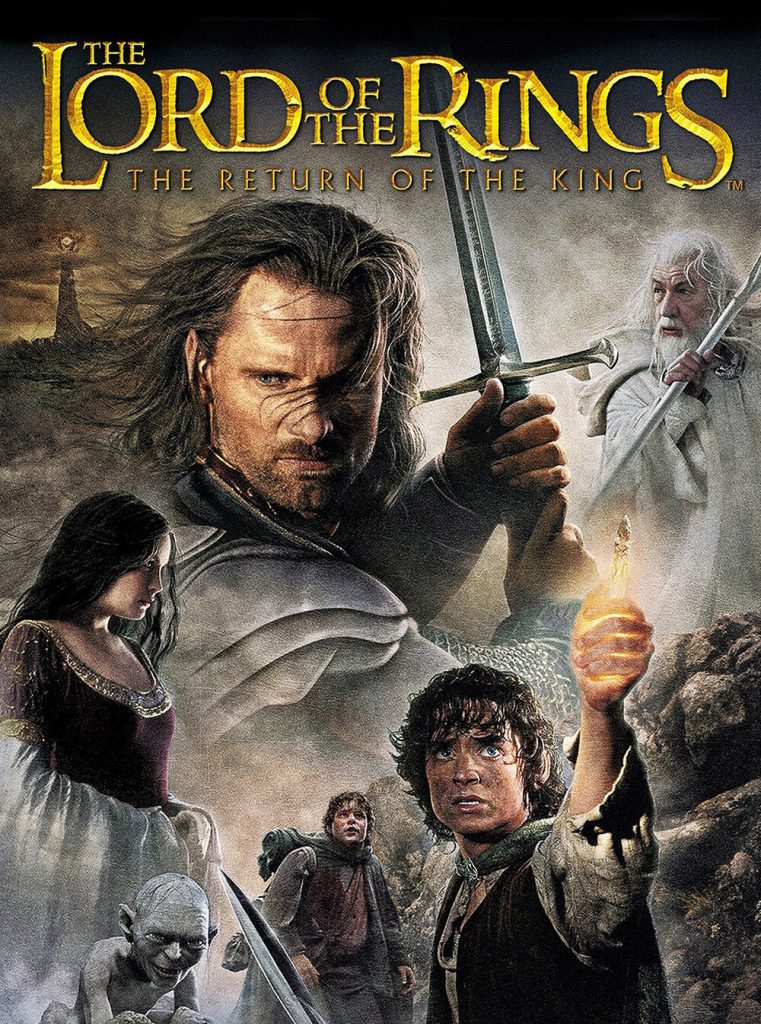
“The Lord of the Rings: The Return of the King” stands as one of the most remarkable cinematic achievements in the history of film. Released in 2003 and directed by Peter Jackson, this epic conclusion to the “Lord of the Rings” trilogy not only redefined the fantasy genre but also solidified its place in cinematic history.
A Grand Culmination
The film picks up where its predecessors left off, with the fate of Middle-earth hanging in the balance. The One Ring, a source of immense power, must be destroyed to prevent the malevolent Sauron from conquering the world. The quest to Mount Doom, where the Ring must be destroyed, unfolds as the culmination of years of storytelling and character development.
Emotional Depth
One of the film’s most notable strengths lies in its deep emotional resonance. As the characters face their greatest challenges and personal demons, their growth and transformation become central themes. Frodo Baggins, Samwise Gamgee, Aragorn, and the other members of the Fellowship experience moments of doubt, courage, and sacrifice that resonate with viewers on a profound level.
Epic Battles
“The Return of the King” features some of the most awe-inspiring and grandiose battles ever put on screen. From the Battle of Helm’s Deep in “The Two Towers” to the climactic Battle of Pelennor Fields in this installment, Peter Jackson’s ability to choreograph epic warfare is nothing short of breathtaking. The sweeping landscapes of New Zealand, where the movies were filmed, provide the perfect backdrop for these monumental clashes.
A Stellar Cast
The film boasts an exceptional ensemble cast, with actors who fully embody their characters. Sir Ian McKellen’s portrayal of Gandalf the White, Viggo Mortensen as Aragorn, and Elijah Wood as Frodo stand out as particularly memorable performances. The chemistry between the actors adds depth to the characters’ relationships and adds to the film’s emotional impact.
Acclaim and Awards
“The Return of the King” received widespread critical acclaim and was a massive box office success. It won a record-tying 11 Academy Awards, including Best Picture, Best Director for Peter Jackson, and a host of technical awards. This achievement not only celebrated the film’s excellence but also recognized the dedication and artistry of the entire filmmaking team.
A Legacy in Film
Beyond its immediate impact, “The Return of the King” has left a lasting legacy in the world of cinema. It showcased the potential of adapting complex literary works into successful film franchises and set new standards for storytelling, visual effects, and epic filmmaking. The film’s influence can be seen in subsequent fantasy films and television series.
A Fitting Conclusion
In “The Lord of the Rings: The Return of the King,” Peter Jackson and his team delivered a conclusion worthy of J.R.R. Tolkien’s timeless saga. The film’s ability to blend heart-pounding action, deep emotion, and profound themes has solidified its place as not just a fantasy epic but a cinematic masterpiece. It remains a must-watch for film enthusiasts and fans of Tolkien’s work alike, standing as a testament to the enduring power of storytelling on the silver screen.